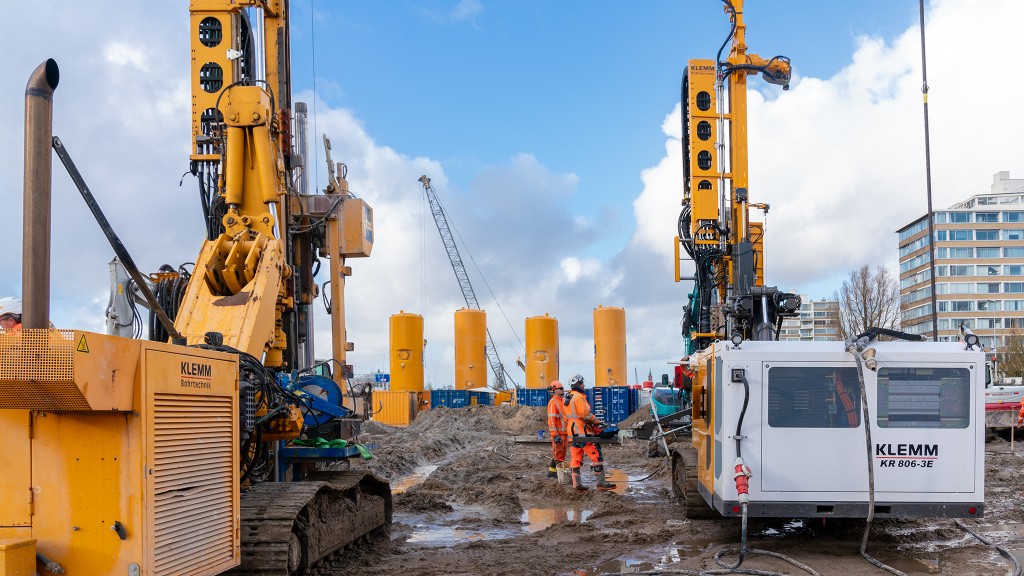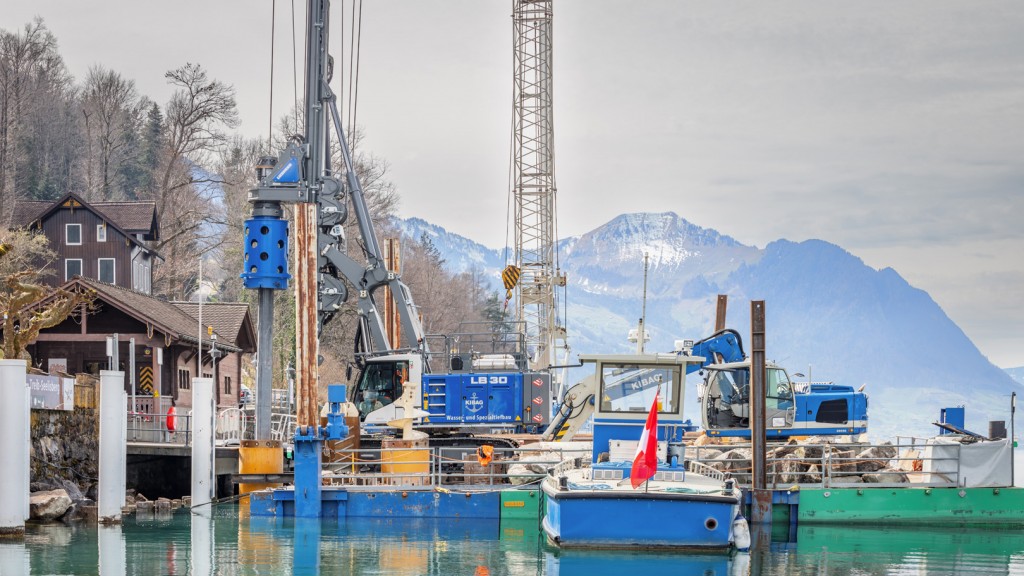Electric drill rig from Bauer reduces noise and emissions on urban highway expansion

Population growth in the area of Amsterdam, the most populous city in the Netherlands, is driving growth in traffic volume. A major road construction project is taking place in the busy urban region, and for the first time an electric drill rig from Bauer is on the job.
The Schiphol-Amsterdam-Almere Corridor project is focused on expanding the A9 highway from Amsterdam Schiphol Airport through southern Amsterdam to Almere on the east of the city. Six construction phases will expand the highway from three lanes in each direction up to four, while also widening connected structures, building new interconnections with side roads, and constructing new bridges and tunnels.
The sixth and last construction phase, an 11.4-kilometre stretch, is being handled by Spanish general contractor FCC Construccion S.A., and requires significant anchor pile installation to move forward.
A segment of the project, specifically, needs special attention. The 1.7-km portion is being developed in three areas, with the middle section, which splits Amstelveen North and South, set to be secured by a total of approximately 12,000 anchor piles drilled up to an average depth of 33 metres. Work on this began in June 2023.
"One particular challenge is the limited workspace within the city and right next to the highway," remarked Maarten Daalmeijer, Project Manager at Bauer Funderingstechniek B.V., part of the joint venture subcontracted to install the anchor piles. "All works have to be coordinated so that traffic can continue unobstructed in the existing six traffic lanes."
To tackle this section, Bauer has for the first time put its electric KR 806-3E drill rig from Klemm Bohrtechnik to work alongside a conventional rig. The electric machine is equipped with both a battery and a grid connection, and it can operate both connected or unplugged.
The KR 806-3E is just as powerful as a diesel-powered drill rig, but operates with no local emissions when plugged into the power grid and very low noise, making it an ideal option for use in urban areas. It is capable of battery operation for several hours at a time as well.
"We have already completed a full working cycle including drilling and expansion entirely using the battery's energy reserves," said Daalmeijer. "Unloading, driving, and transfer operations have also been carried out autonomously."
The KR 806-3E and other drills will continue working on the project, installing anchor piles in a high groundwater table, through the completion of the project in 2025.



